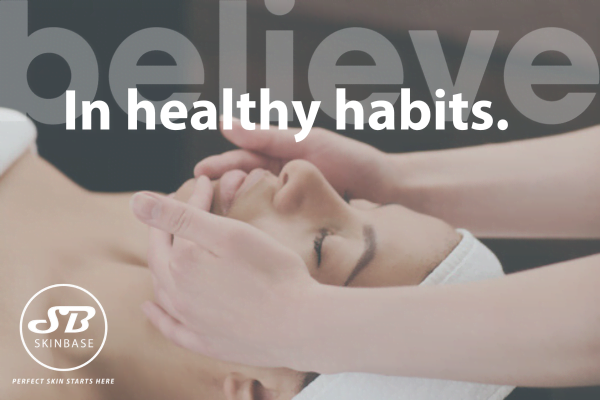April 16th is National Stress Awareness Day. The skin is the body’s largest organ, so it is no surprise that it reflects what is going on inside. Here are 5 ways stress affects skin.
Download a FREE beauty guide
Discover our collection of free beauty guides.

5 Ways Stress Affects Skin
The brain-skin axis is a two-way relationship. The skin itself can send stress signals (particularly from environmental stressors) to the brain, just as the brain sends stress signals to the skin. Stress has a direct affect thanks to the cortisol hormone, and can affect the skin in a multitude of ways. When cortisol is released it increases the oil production in your skin. Pores become clogged – spots and blackheads form. When stress is reduced, skin flare-ups tend to calm down.
Let’s take a look at the ways stress affects skin:
(1) Acne
Increased stress can cause inflammation within the body and also increase sebum production. These are 2 factors that contribute to the development of acne. If you already suffer with acne, stress can make it worse. If you are suffering with acne, SkinBase Microdermabrasion is an excellent treatment to consider.
(2) Redness
Increased inflammation within the body (caused by stress) can result in redness and an uneven skin tone, showing even more ways stress affects skin. Sit back and take some deep breaths.
(3) Fines lines and wrinkles
Stress hormones break down collagen and elastin fibres within the skin. It’s no secret that prolonged periods of stress can speed up the ageing process.
(4) Dark under-eye circles
Increased stress can disturb sleep. Sleep deprivation causes dark under-eye circles and puffy skin.
(5) Rashes and Hives
Stress has an impact on the immune system, causing the skin to be sensitive and more reactive than usual. You may notice this appear on the skin in the form of rashes and hives.
How To Reduce Stress
- Use deep breathing exercises to help calm – or try yoga and meditation.
- Get enough sleep. The brain and mind need time to recharge every night. Aim for between 7-9 hours each night.
- Exercise. It boosts circulation and is good for your skin. Exercise can also improve sleep.
- Drink less coffee – caffeine can make stress worse.
- Maintain a good skincare routine.
National Stress Awareness Day is a good time to take stock. There is no denying the ways stress affects your skin – so destress your life and achieve a healthy complexion.

